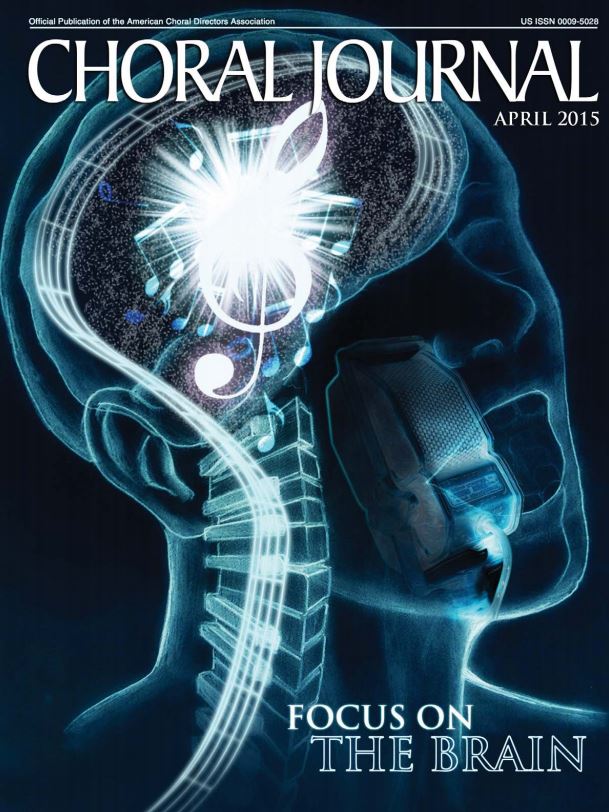The April 2015 issue of Choral Journal was a special focus on the brain. The three feature articles were titled “Exploring the Science of Ensemble: Gestures, Emotion, and Collaboration in Choral Music Making” by Gary B. Seighman, “Monkey See, Monkey Do: The Choral Conductor and the Mirror Neuron System” by Riikka Pietiläinen-Caffrey, and “Effective Conducting in the Choral Classroom: An Interview with Rodney Eichenberger” by Adam Conn. The last article will be the subject of today’s ChoralNet blog.
Rodney Eichenberger is a choral conductor who is known for his conducting philosophy “What They See Is What You Get,” which is also the title of his instructional video on choral conducting, available through Hinshaw Music. The interview published in Choral Journal contains some interesting and useful information about Rodney’s conducting philosophy and his approach to lessons and conducting gesture. Following are two questions and their answers.
Q: Many conductors are taught to conduct the pattern with a loop on the second and third beats in a 3/4 pattern or a loop on the second, third, and fourth beats in a 4/4 pattern. I have often seen you demonstrate the effect of using a pointed versus rounded ictus with those various beat patterns. Can you describe why this is an important concept?
A: Clarity of the ictus is conducting can eliminate a lot of rhythmic and phrasing problems. When conducting in 3/4 time, for example, conductors often have the habit of making beat two a loop so that the hand continues in the same direction after beat two occurs. If a dotted quarter and eight comprise the first two notes, it seems that this not only muddies the definition of the tempo but also affects the ensuing eighth note. With the loop, the eighth note seems to attach to beat one. When the second beat is a clear V so that the direction of the release is up instead of out, the eighth note attaches to beat three and gives forward movement to the phrase. Another aspect is the importance of a smooth, even movement between beats and reserving the bounce away from the ictus for special effects.
Q: I have heard some criticism that you teach your students to use too low a conducting gesture. Can you help shed some light on this topic?
A: Yes, I am often accused of asking conducting students to conduct too low. But in reality, I am simply asking them not to avoid the belt area. Often conducting instructors suggest that the hands should be almost at shoulder level for the attention position. Giving the preparatory gesture at this level not only encourages clavicular breathing, but if the conductor continues to conduct at this level, it leads to vocal fatigue and negates a wide area of usable conducting space. I believe that the upward movement is powerful, and failure to use the full range from the power center to the shoulder takes away many possibilities. Both hands cupped in front of the body with palms down just above the navel gets an entirely different sound than with both hands cupped at shoulder level. When I demonstrate this in clinics, I have yet to have a choir sound the same with both of these positions.
Read the rest of the interview in the April 2015 issue! Do you agree or disagree with the above? What has your experience been with the height of conducting gestures in producing different sounds?
ACDA members can read this issue of the Choral Journal online by clicking here. Non members can review the benefits and membership categories here. (There is an associate membership option for only $45 a year!)



Leave a Reply
You must be logged in to post a comment.